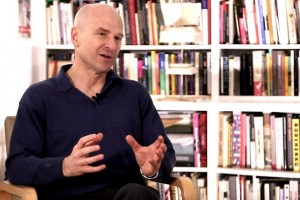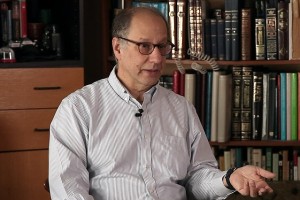The Library Beyond the Book
Harvard Professor Jeffrey Schnapp on the redundancy between digital and analogue formats, physically assembled...
How to deal with the fact that our brain is really small and the world is really big? What is the main value of the Web as the source of discussion? Senior Researcher at Harvard’s Berkman Center For Internet & Society David Weinberger speaks on understanding knowledge in a much more capacious way then in was before the Internet.
The Internet is changing the nature of knowledge, knowledge in the West has had a number of characheristics right from the beginning of the invention of knowledge in Ancient Greece as justified true belief which Plato was talking about. So, knowledge has been settled, if people are still disagreeing about whether or not something is knowledge, we say, «Well, we don’t know yet». Right from the beginning has been only the sets of beliefs that make it through, the tests of knowledge, that’s always been a reduction: among all the beliefs only some are knowledge.
If I were curious about what the atomic weight of carbon is, I’d look it up, I’d get the answer. I move on, I don’t have to reprove what the atomic weight of carbon is. And if I don’t trust the source, the source can tell me that it has degree from Oxford, if it’s a person, if it’s an expert, or it can tell me that it was published by University of Oxford, so we have the secondary set of starting point for enquiry which is a credentialing system that lets knowledge go forward, and it’s been incredibly productive force.
Written books are stopping points. They are wonderful, we all like them, but they are stopping points, the author knows, that you can not easily go from the book back to the library to follow a link, to look something up, so the author’s job is to get everything the reader needs within the covers. And knowledge is taking on that property as well, it is what fits between covers or fits within discipline. All of these properties of knowledge are properties of the medium of knowledge, but now that knowledge has new medium – the Internet.

Harvard Professor Jeffrey Schnapp on the redundancy between digital and analogue formats, physically assembled...

Harvard Senior Researcher David Weinberger on how filtering on the Internet is organized, and the web of knowl...

Philosopher Dennis Bonnay on metamathematics, set theory, and the Gödel's theorem